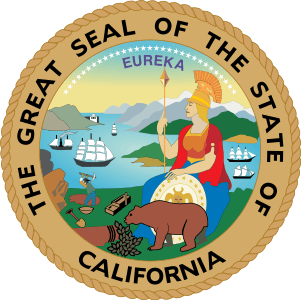2002 Oakland mayoral election
The 2002 Oakland mayoral election was held on March 5, 2002 to elect the mayor of Oakland, California. It saw the reelection of incumbent mayor Jerry Brown.
| ||||||||||||||||
| ||||||||||||||||
| ||||||||||||||||
Municipal elections in California are officially non-partisan.
Campaign
Former Oakland City Council member Wilson Riles Jr., who had served on the City Council from 1979 until 1992, challenged incumbent first-term mayor Jerry Brown.[1][2]
Brown ran a low-profile campaign.[3]
Brown had $200,000 in campaign funds, more than twice what Riles had.[3]
While the previous election had attracted national media attention, very little media coverage was paid to the 2002 race.[4]
A chief critique of Brown made by Riles was that the incumbent mayor was too cozy with downtown developers.[1]
Riles, ultimately, performed stronger than had been anticipated by many.[3]
Brown was also campaigning in support of ballot measure that would permanently extend 1998's Measure X, which had implemented a 6 year period in which Oakland would be run under the strong mayor form of governance. Measure X's change from a weak mayor to strong mayor form of governance would expire during the coming mayoral term. However, the measure to permanently extend Measure X ultimately failed in 2002.[5] A similar measure which permanently extended the Measure X changes, however, would successfully be approved by voters in 2004, thus permentantly keeping they changes made by Measure X.[5]
Results
| Candidate | Votes | % | |
|---|---|---|---|
| Jerry Brown (incumbent) | 42,892 | 63.5 | |
| Wilson Riles Jr. | 24,611 | 36.4 | |
References
- "Ex-Congressman Dellums May Run for Oakland Mayor". NPR.org. NPR. April 2006. Retrieved April 23, 2020.
- "Oakland Police Chief Orders Probe Into Arrest Of Ex-Councilman Wilson Riles Jr". CBS News San Francisco. October 21, 2019. Retrieved April 23, 2020.
- DeFao, Janine (March 6, 2002). "Oakland Mayor Brown wins second term / Jerry Brown wins re-election by landslide". SFGate. Retrieved December 8, 2019.
- DeFao, Janine; Writer, Chronicle Staff (February 4, 2002). "Jerry Brown faces quiet race / Critics contend Oakland mayor has given up his populist ways". SFGate. Retrieved December 8, 2019.
- Svara, James H.; Watson, Douglas J. (2010). More than Mayor or Manager: Campaigns to Change Form of Government in America's Large Cities. Georgetown University Press. pp. 121–138. ISBN 978-1-58901-620-0. Retrieved December 12, 2019.
- "Mayor; City of Oakland Voter Information". Smart Voter. Retrieved November 7, 2019.

